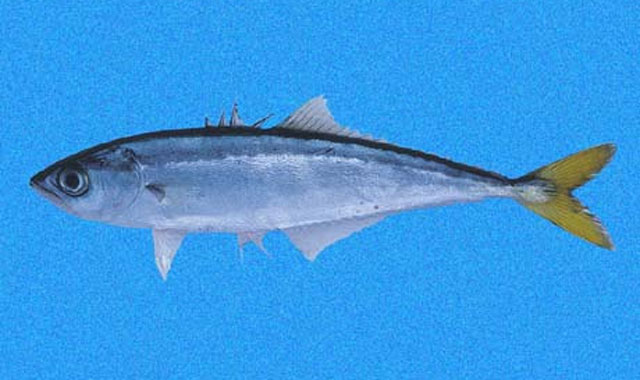| Carangidae (Jacks and pompanos), subfamily: Scomberoidinae |
| 28.2 cm TL (male/unsexed); max.weight: 145.2 g |
|
pelagic-neritic; brackish; marine |
| Eastern Pacific: Mexico to Ecuador. Also reported from Paita, Peru (Ref. 5530). |
|
Body strongly compressed and elongate (depth from 4.5 to 5.4 times in standard length); posterior end of upper jaw reaching middle of eye; upper jaw teeth small and villiform; lower branch of first gill arch with 19 to 22 gill rakers; scales small but visible, needle-shaped, embedded in the skin; back dark gray; belly and flanks silvery or blue gray with yellow highlights; dorsal and anal fins charcoal colored; pelvic fins white; pectoral and caudal fins yellow (Ref. 55763). |
| Adults are found in littoral waters (Ref. 9283). They tolerate low salinities and may temporarily penetrate estuarine waters (Ref. 9283). The dorsal and anal spines are connected to venomous glands that can cause painful wounds (Ref. 9283). Marketed fresh and salted or dried (Ref. 9283). |
|
Least Concern (LC); Date assessed: 30 April 2008 Ref. (130435)
|
| venomous |
Source and more info: www.fishbase.org. For personal, classroom, and other internal use only. Not for publication.
